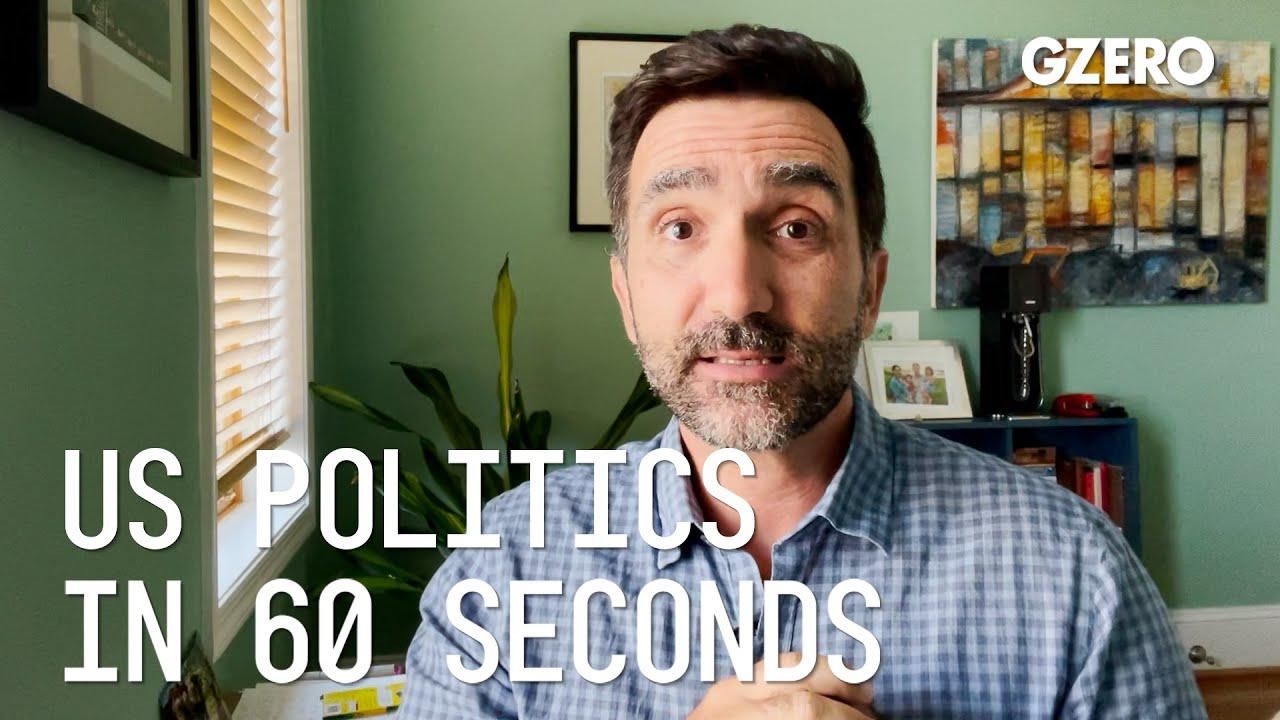US Politics In 60 Seconds
How the Democrats plan to tax the rich; Newsom wins CA recall

How the Democrats Plan to Tax the Rich | Newsom Wins CA Recall | US Politics In :60 | GZERO Media

Jon Lieber, head of Eurasia Group's coverage of political and policy developments in Washington, shares insights on US politics:
Will the House Democrats actually be able to "tax the rich"?
The answer to that question is yes, the House Democrats this week rolled out a proposal in order to partially finance their plans to spend $3.5 trillion. The tax proposal is notable for three things. One, while it does raise taxes on corporate America, including the corporate rate (that's 26.5% from 21% today), it goes a little bit softer on them than a proposal from Senate Democrats or from the Biden administration who wanted to be much more aggressive in going after the overseas earnings of US multinational corporations.
Two, is the proposal's reliance on money from America's wealthiest citizens, including by increasing the top rate back to 39.6%, which was the rate before the Trump tax cuts and imposing a new 3% surtax on people earning over $5 million a year. Not a big constituent groups. Very unlikely you see a lot of pushback against that. In some ways, however, the House proposal was more moderate than some of the proposals we've seen from other Democrats, including on taxing capital gains at death, taxing the oil and gas industry, and the top capital gains rate, which in the House proposal only goes to 25% as opposed to the Biden proposal to go all the way to 39.6%. So, this proposal isn't going to pass exactly as proposed, but it does show a pathway for Democrats to raise a lot of money from corporate America and the wealthiest Americans.
What are the takeaways after Governor Gavin Newsom survived the California recall election?
Well, to be honest, there really aren't that many. This election was a fluke really driven by California's easy recall laws, which allow a very small number of voters to put together a petition to launch a recall, which turned out to be very expensive by the way, almost a quarter of a billion dollars was spent on this election, which Newsom ended up winning quite easily. In fact, he won by almost the exact margin he won his 2018 gubernatorial election, which just tells you more about the partisan lean of the state and the fact that he is a Democrat in a state that a Republican hasn't won statewide in over a decade than it does about any of the atmospherics surrounding his approach to COVID or people being unhappy about him having a fancy birthday dinner. One possible takeaway is reports that one of the leading Republican candidates was trying to delegitimize the results of the election by claiming fraud that wasn't there, which echoes of course, President Trump's delegitimization of the 2020 election. And unfortunately, is probably a sign of things to come for the loser in election statewide and at the federal level going forward, particularly among Republicans.
In this Quick Take, Ian Bremmer addresses the killing of Alex Pretti at a protest in Minneapolis, calling it “a tipping point” in America’s increasingly volatile politics.
Who decides the boundaries for artificial intelligence, and how do governments ensure public trust? Speaking at the 2026 World Economic Forum in Davos, Arancha González Laya, Dean of the Paris School of International Affairs and former Foreign Minister of Spain, emphasized the importance of clear regulations to maintain trust in technology.
Will AI change the balance of power in the world? At the 2026 World Economic Forum in Davos, Ian Bremmer addresses how artificial intelligence could redefine global politics, human behavior, and societal stability.
Ian Bremmer sits down with Finland’s President Alexander Stubb and the IMF’s Kristalina Georgieva on the sidelines of the World Economic Forum to discuss President Trump’s Greenland threats, the state of the global economy, and the future of the transatlantic relationship.